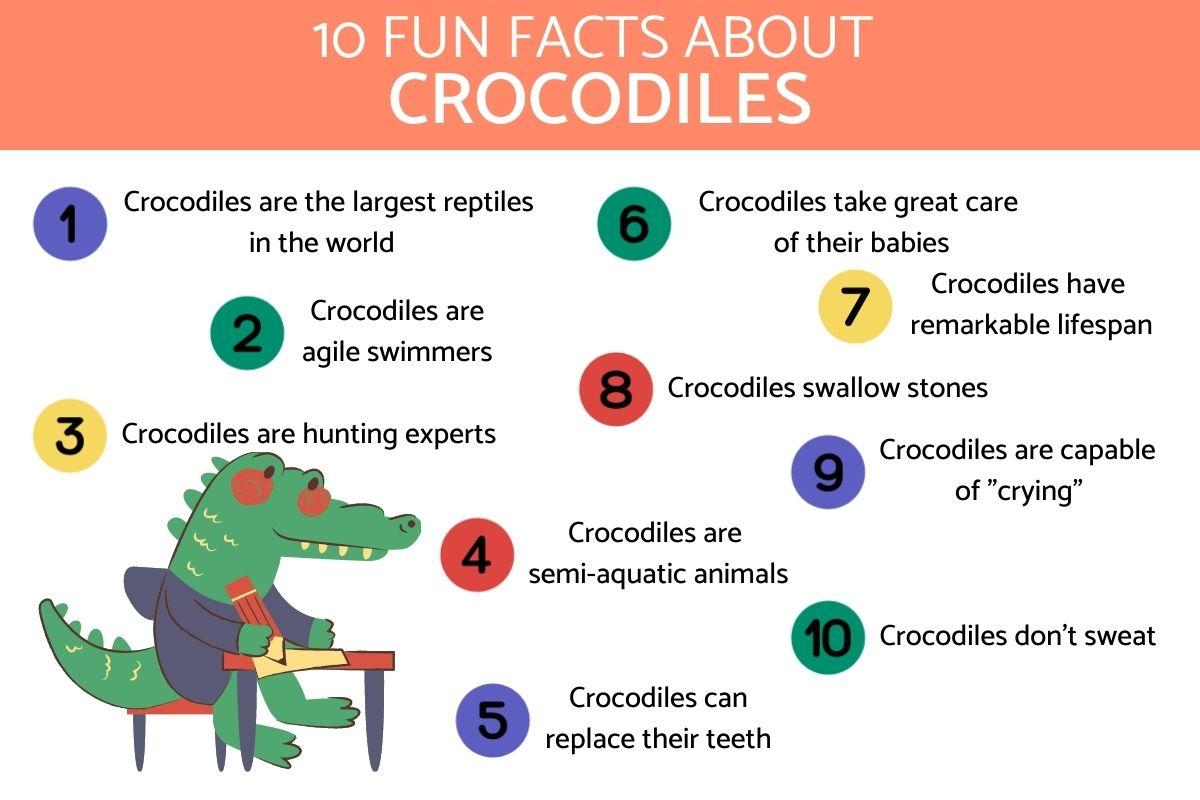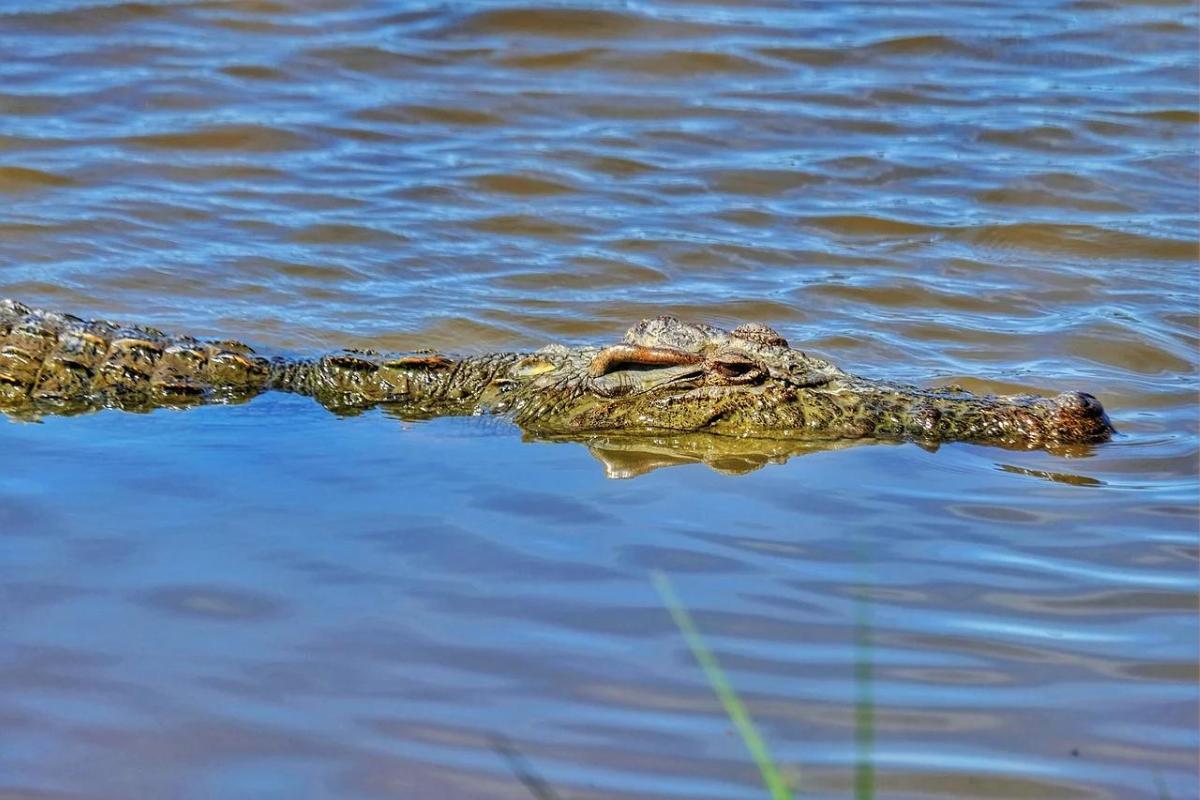Fascinating Facts About Crocodiles

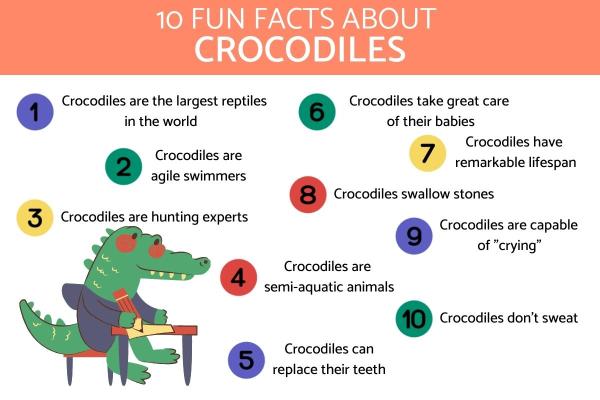
Crocodiles, with their formidable presence and reputation, have always captivated our attention and piqued our curiosity. These ancient reptiles have roamed the Earth for millions of years, adapting remarkably to various environments and surviving significant environmental changes. Beyond their intimidating exterior, crocodiles hold a multitude of intriguing traits that make them captivating creatures.
In the following AnimalWised article, we will explore 10 fascinating facts about crocodiles that are sure to surprise you.
- Crocodiles are the largest reptiles in the world
- Crocodiles are agile swimmers
- Crocodiles are hunting experts
- Crocodiles are semi-aquatic animals
- Crocodiles can replace their teeth
- Crocodiles take great care of their babies
- Crocodiles have remarkable lifespan
- Crocodiles swallow stones
- Crocodiles are capable of
- Crocodiles don't sweat
Crocodiles are the largest reptiles in the world
One of the most astounding facts about crocodiles is their remarkable size, making them the largest reptiles on Earth. Among them, the saltwater crocodile (Crocodylus porosus), also known as the marine crocodile, takes the crown as the largest of them all. These mighty creatures can grow up to a staggering length of 7 meters (ca. 23 ft) and weigh over 1 ton. What's truly awe-inspiring is their jaw strength, as they possess a powerful bite force capable of crushing bones and effortlessly dragging their prey into the water.
Discover a wide range of carnivorous reptiles in our article on remarkable hunters.

Crocodiles are agile swimmers
Despite their rough and heavy appearance, another fascinating fact about crocodiles is their exceptional agility in the water. With their streamlined body and powerful tail, they can swiftly glide through the water, reaching speeds of up to 30 kilometers per hour (18.6 miles per hour). What's even more impressive is their ability to remain submerged for extended periods, with some species capable of staying underwater for up to 2 hours at a time.
Crocodiles are hunting experts
If there's one thing crocodiles are renowned for, it's their remarkable skill in stealthily stalking their prey. When it comes to how crocodiles hunt, their strategy revolves around maintaining a motionless position in the water, with only their eyes and nostrils exposed, patiently awaiting the ideal opportunity to strike. This hunting technique, coupled with their impressive speed and strength, renders them formidable predators.
Don't miss out on our enlightening article that explores the intriguing differences between alligators and crocodiles.
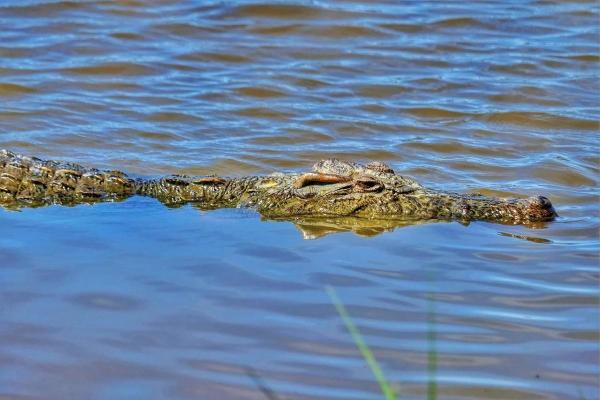
Crocodiles are semi-aquatic animals
Crocodiles exhibit a semi-aquatic lifestyle, meaning they divide their time between water and land. This unique adaptation provides them with distinct advantages and enables their survival in various habitats. As mentioned earlier, crocodiles are formidable predators, which is why their ability to navigate both aquatic and terrestrial environments is crucial for hunting.
These semi-aquatic creatures utilize water and land for protection and camouflage purposes. In the water, they can submerge themselves to evade predators or silently approach their prey. On land, their coloration and skin texture allow them to blend seamlessly with their surroundings, ensuring effective camouflage and inconspicuousness.
Crocodiles can replace their teeth
Crocodiles possess extraordinary dental features that can be quite intimidating. Many of us have come across photographs of crocodiles with their jaws wide open, revealing their long snouts and a formidable row of teeth. What makes their dental structure fascinating is their ability to constantly regenerate teeth throughout their lives. With approximately 80 teeth in their jaws, crocodiles can continuously replace any lost or damaged teeth, ensuring they maintain their fearsome smile at all times.
Discover fascinating insights into the dietary habits of crocodiles in our other article.
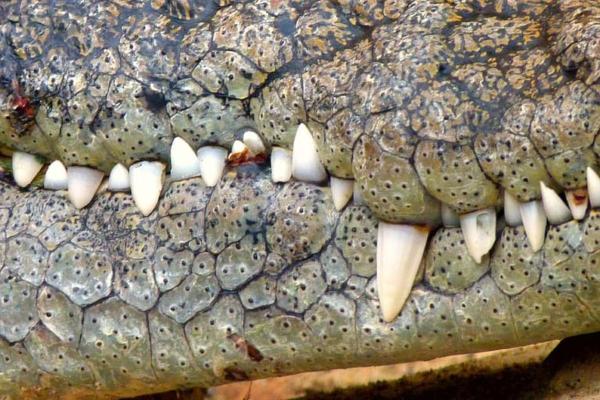
Crocodiles take great care of their babies
Contrary to the fearsome reputation of crocodiles, female crocodiles display remarkable maternal instincts. They exhibit a high level of attentiveness and protectiveness towards their young, recognizing the criticality of ensuring the survival of the next generation. Despite being formidable predators, hatchling crocodiles are inherently vulnerable and face numerous threats from the moment they hatch.
One intriguing aspect of female crocodiles is their meticulous nest-building behavior. They carefully select and construct nests, often comprised of vegetation or sand, situated in close proximity to water sources. These nests serve as a secure environment where eggs can safely develop and hatch, providing a direct path for the hatchlings to access the protective aquatic habitat. This nurturing behavior highlights the dedication and protective nature of female crocodiles as mothers.

Crocodiles have remarkable lifespan
One fascinating aspect of crocodiles is their remarkable longevity, which can vary depending on the species. Certain species have been known to live up to 70 or 80 years in the wild, while documented cases in captivity have even exceeded 100 years.
The extended lifespan of crocodiles can be attributed to a combination of biological and environmental factors that enable them to outlive many other animals of comparable size. Firstly, crocodiles possess a slow metabolism, which means their bodies age at a slower rate compared to other creatures. Additionally, they thrive in stable aquatic environments that provide consistent food sources and reduce the stressors associated with changing habitats.
Another factor that contributes to their longevity is the absence of natural predators that pose a significant threat to their survival. This allows crocodiles to reach their maximum lifespan without constant predation pressure.
Moreover, crocodiles have impressive physical adaptations, such as their strong immune systems and ability to regenerate damaged tissue, which enhance their overall health and longevity.
Crocodiles swallow stones
One intriguing behavior exhibited by crocodiles is gastrolithism, which involves the swallowing of stones. Crocodiles engage in this behavior for several reasons, primarily to aid in digestion.
The stones present in the crocodile's stomach act as a grinding mechanism, similar to a mill, helping to break down large prey, such as fish or mammals, into smaller and more manageable pieces. This facilitates the digestion process by increasing the surface area available for enzymatic action.
In addition to digestion, crocodiles also swallow stones to regulate their buoyancy in the water. By ingesting stones, they can adjust their balance and weight, enabling them to submerge or float as desired. The presence of stones in their stomach provides additional control over their movements while swimming, allowing for enhanced maneuverability.
Furthermore, gastrolithism plays a role in regulating the storage of heat within the crocodile's body. The stones can absorb and retain heat, contributing to the crocodile's thermoregulation. By strategically positioning or relocating the stones within their digestive system, crocodiles can modulate their body temperature to adapt to varying environmental conditions.
Don't miss out on this other article that delves into the topic of how crocodiles reproduce.
Crocodiles are capable of
Are you familiar with the phrase "crocodile tears"? It is often associated with the belief that crocodiles shed tears, but their tears do not stem from emotional experiences like humans. Crocodiles do possess lacrimal glands that produce tears, but their purpose is not connected to emotional crying; rather, it is a physiological response.
When crocodiles are out of the water and open their mouths, you may notice their eyes appearing wet, with tears seemingly flowing from them. These tears serve primarily to protect the crocodile's eyes. They help flush away debris and maintain eye hygiene.
Additionally, crocodile tears aid in the removal of excess salt from their eyes. Crocodiles possess special salt glands on their tongues, which allow them to excrete salt extracted from the salty water they inhabit. Therefore, the tears in crocodiles serve important functions related to eye protection and salt regulation, rather than expressing emotions as humans do.
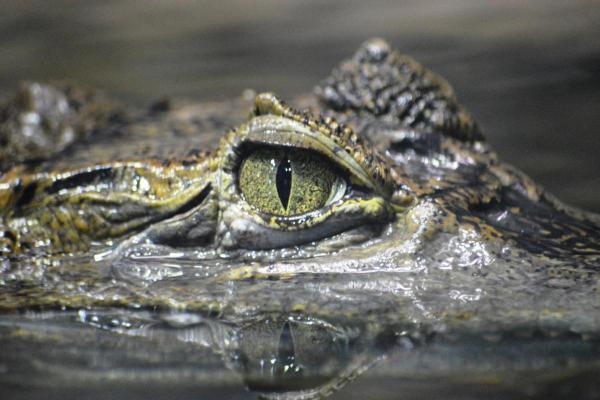
Crocodiles don't sweat
One interesting fact about crocodiles is that they do not sweat. Unlike mammals, crocodiles lack sweat glands, which are responsible for producing sweat. Instead, crocodiles are ectothermic animals, meaning that they rely on their environment to regulate their body temperature. They do not internally generate heat like mammals do.
Crocodiles have a unique ability to control their body temperature by moving to warmer or cooler areas as needed. Their low-profile body, hard scales, and thick skin serve as protective barriers against water loss and excessive heat input.
Additionally, crocodiles employ various thermoregulation behaviors, such as basking in the sun to warm up or submerging in water to cool down. These adaptations allow them to maintain an optimal body temperature without the need for sweating.
You might find this article intriguing as we delve into the question: "Is a crocodile a lizard?" Join us as we explore the fascinating relationship between crocodiles and lizards, shedding light on their similarities and differences.
If you want to read similar articles to Fascinating Facts About Crocodiles, we recommend you visit our Facts about the animal kingdom category.





